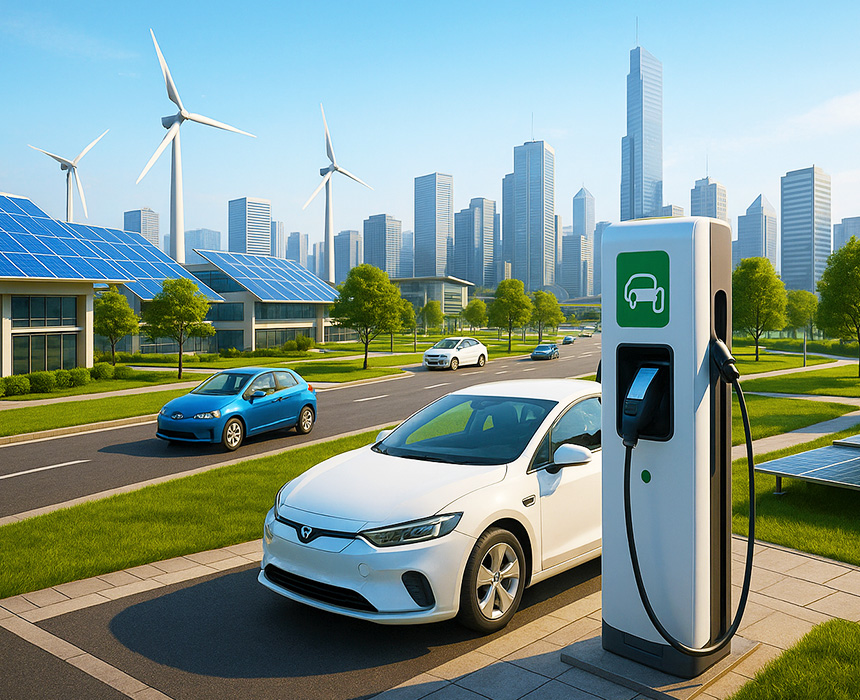Future Cities and Infrastructure Transformation in the EV Ecosystem
The widespread adoption of electric vehicles (EVs) is profoundly transforming urban infrastructure and energy systems. It is not only a matter of changing transportation modes but also of redesigning cities as integrated ecosystems. Combined with the smart city concept, the EV ecosystem promises both environmental sustainability and economic efficiency, laying the foundation for a new urban lifestyle.
Future cities will be characterized by fully electric and shared mobility. Declining private car ownership, the rise of autonomous driving, and shared mobility services will reduce congestion while lowering individual carbon footprints. This transformation requires a fundamental redesign of roads, parking, and energy infrastructure. In regions with high EV adoption, the placement of charging stations becomes critical, and smart software solutions ensure their efficient operation.
Energy systems are also undergoing a significant transformation. Traditional grids designed for one-way energy flows are being replaced by flexible, bi-directional smart grids to accommodate renewable energy and EV integration. Vehicle-to-Grid (V2G) technology enables cars to become energy providers, stabilizing grids during peak demand. Combined with storage technologies, intermittent sources like solar and wind can be efficiently managed, making cities more resilient and energy efficient.
Economically, the EV ecosystem contributes to local development. Investments in charging infrastructure, renewable projects, and digital platforms create new jobs and revenue streams. Meanwhile, lower carbon emissions reduce public health costs and increase social well-being. Governments worldwide support this transition with incentives, tax reductions, and regulatory frameworks. In Turkey, EPDK and TSE guidelines, in the U.S. DOE and FERC policies, in Central Asia O’zbekenergo frameworks, and in Russia Минэнерго strategies play central roles in shaping this evolution.
Social transformation is equally crucial. As awareness of environmental issues grows, demand for sustainable mobility increases. This demand influences not only individual choices but also public and private investment strategies. Education, awareness campaigns, and broader technology access reinforce this cultural shift.
In conclusion, the EV ecosystem is reshaping not just transportation but entire cities. From energy systems to social behavior, from economic growth to environmental protection, the transformation is multidimensional. Future cities will be smarter, greener, and more efficient, enabled by renewable energy, digital technologies, and user-centric mobility solutions.




